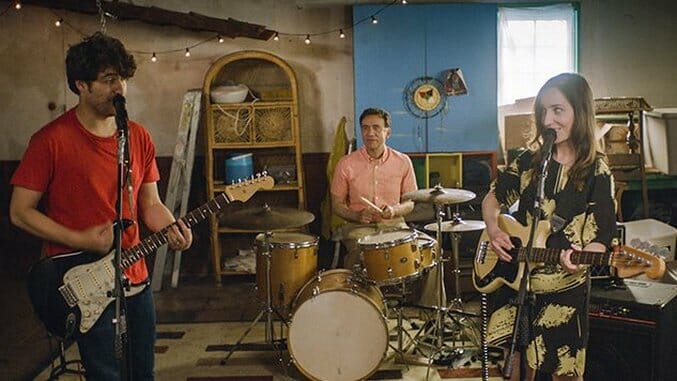Band Aid

Band Aid is yet another one of those indie films whose mildly unconventional execution masks disappointing convention at its core. There’s some novelty to its premise: Frequently bickering married couple Anna (Zoe Lister-Jones, who is also the film’s writer, producer and director) and Ben (Adam Pally) decide to turn their arguments into songs as well as to start their own band to perform them (such tensions led Fleetwood Mac, for instance, to create their classic Rumours, after all). Lister-Jones’s improvisatory approach to directing individual scenes may be familiar from the comedies of Judd Apatow and Joe Swanberg, but the two stars have likable, if sometimes prickly, chemistry together, and Lister-Jones at least doesn’t seem to have Apatow’s perpetual problem of letting scenes built on improv go on too long. The songs they perform aren’t too shabby, either, with Lister-Jones and co-songwriter Kyle Forester coming up with tunes that are infectious without sounding too slick, always feeling like the work of amateurs, albeit ingratiatingly so.
-

-

-

-

-

-

-

-

-

-

-

-

-

-

-

-

-

-

-

-

-

-

-

-

-

-

-

-

-

-

-

-

-

-

-

-

-

-

-

-








































